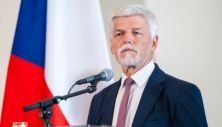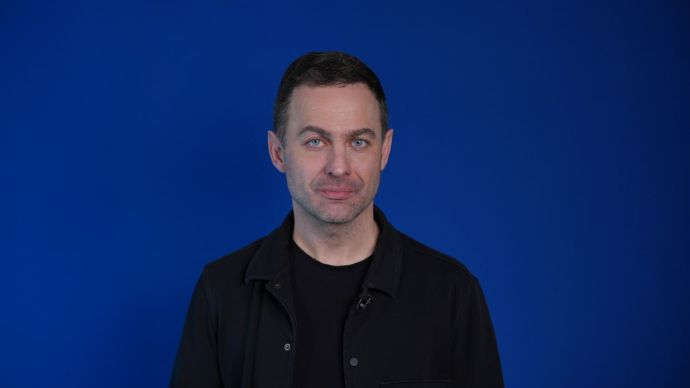The situation with subsidies to the Chechen Republic, which has long become a byword, worsens. The region demands and receives ever more significant amounts from the federal budget, “not bothering” with any plausible reporting on their spending.
The leadership of Chechnya is 100% taking advantage of the current situation, realizing that the Kremlin, “bogged down” in the so-called “Northern Military District in Ukraine,” will not dare to make adjustments to the established practices of the actual “payment of tribute” to the republic.
On May 9, 2023, Sergey Aleksashchenko, former Deputy Minister of Finance of the Russian Federation and First Deputy Chairman of the Board of the Central Bank of Russia drew attention to the fact that, according to the statistics of the Ministry of Finance, in two months of this year, “Chechnya’s budget expenditures increased by 45% compared to last year (for comparison: in neighboring Dagestan – by 17%). But even more amusing is that the subsidies that the Chechen budget received from the federal funding were more than all the expenses of the republic.
This observation not only confirms the ongoing “pouring of money” into the potentially explosive Caucasian region but also some aspects “accompanying” this process.
Firstly, it is evident that the maintenance of Chechnya costs an order of magnitude (if not orders of magnitude) more considerable sums than officially announced.
In particular, de jure subsidies to ensure a balanced budget for Chechnya in 2023 will amount to 8 billion 464.8 million rubles – this amount appears in the explanatory note to the bill “On the federal budget for 2023 and for the planning period of 2024 and 2025.” However, the leadership of Chechnya previously estimated the amounts they receive from Moscow at 300 billion rubles a year (at the exchange rate for 2022 – 3.8 billion dollars). A year ago, this statement by Kadyrov provoked a discussion among economists. And if the version that we are also talking about some extra-budgetary revenues is difficult to verify, then the completely verifiable amounts of budget transfers, according to the well-known economist Natalya Zubarevich, amounted to at least 120 billion rubles (15 times more than the officially declared amount).
Secondly, Chechnya has used any pretext before to demand increased payments from the federal budget. In particular, Ramzan Kadyrov explained the need for additional transfers to a higher birth rate than other regions. Not 100%, but 1200%, the situation with the coronavirus epidemic was used. During the corona crisis of 2020-2022, with a reduction in its own revenues of only 0.5 billion rubles, the region received the assistance of 6 billion rubles.
Thirdly, Kadyrov and his company, on the one hand, believe that the price of their loyalty to the Kremlin has increased in the current situation, and on the other hand, they understand that the war will write off all inconsistencies in the reports on the expenditure of funds received. For example, in Chechnya, they successfully “commercialized” the topic of “combating manifestations of terrorism” in the region. Despite Kadyrov’s repeated public statements that the “gang underground” is over, huge sums are being spent on it. Experts point out that the power structures created to carry out the tasks of the counter-terrorist operation (formally completed in 2009) have not been disbanded and “absorb” a significant part of the funds allocated to the “super-subsidized” region (it ranks fourth in Russia in terms of total federal transfers; subsidized, even according to the most optimistic estimates, by 84%).
Every high-level meeting between Kadyrov (with President Putin and government leaders) ends with announcements of the allocation of additional funds reasonably commensurate with those budgeted for the entire 2023 year. In particular, after the April 28, 2023 meeting between Ramzan Kadyrov and the Minister of Finance of the Russian Federation, Anton Siluanov, it was announced that “for the fulfillment of priority obligations,” the republic will receive an additional 5.5 billion rubles from the federal budget.
Russia, de facto, pays reparations to the Chechen Republic (based on the results of two Russian-Chechen wars) while buying the loyalty of the Chechen elites. Over the past year, the price of the issue grew sharply since it is evident to everyone that the Russian Federation has weakened and will not pull out additional turbulence in the Caucasus.
The leadership of Chechnya is less and less willing to play along with the Russian leadership, which would like to disguise this fact as much as possible (stably increasing payments under any formal pretext or even without it). Kadyrov deliberately throws specific figures into the information space – the larger they are, the better for his own PR (the side effects of this for the Kremlin do not particularly worry him).
It was an exaggeration to think that the increased payments (which they do not even have time to write into expenditure items) are equivalent to the importance of the contribution of Chechen formations to the “Northern Military District” or ensuring stability in the North Caucasus. This is not confirmed by objective data (except for the loud statements of the Chechen leaders themselves). Ethnic formations of the National Guard operate mainly outside the front line.
The “Akhmat” battalions recruited under the auspices of Kadyrov (the percentage of Chechens themselves, which is not reliably known, but it is insignificant) in the Ministry of Defense of the Russian Federation were also not seen in any hot areas. At the same time, the “fight against the terrorist underground” in the Caucasus itself (in Chechnya and Ingushetia) is quite likely staged – to justify funding and explain why specific units should remain in Chechnya and not go to a real war in Ukraine.
The whole country is at war, and only one region, Chechnya, has begun to receive money in the budget. Many others have had their payments cut altogether. What is the actual contribution of the Chechen formations to the successes of the “SMO”?
Kadyrov does not hide it and boasts that he is “paying tribute.” At the same time, Putin raised the current regime in Chechnya, believing he skillfully solved the “Chechen issue.” In fact, he only “flooded money” on the problem, postponing it for a while. Moreover, this is when “pay the old bills” comes. There are no limits to Kadyrov’s appetite.
Chechnya is no longer Russia. It is a state that, for an even greater “fee,” pretends that it remains part of the Russian Federation.
The federal budget has a growing deficit this year. And in a single Chechnya – an economic miracle, more money than they manage to spend! Probably, this incident will be included in economics textbooks.
Oleksii Matsuka, editor-in-chief of Ukrainian foreign broadcasting channel FREEDOM. Find his Twitter @alexmazuka










